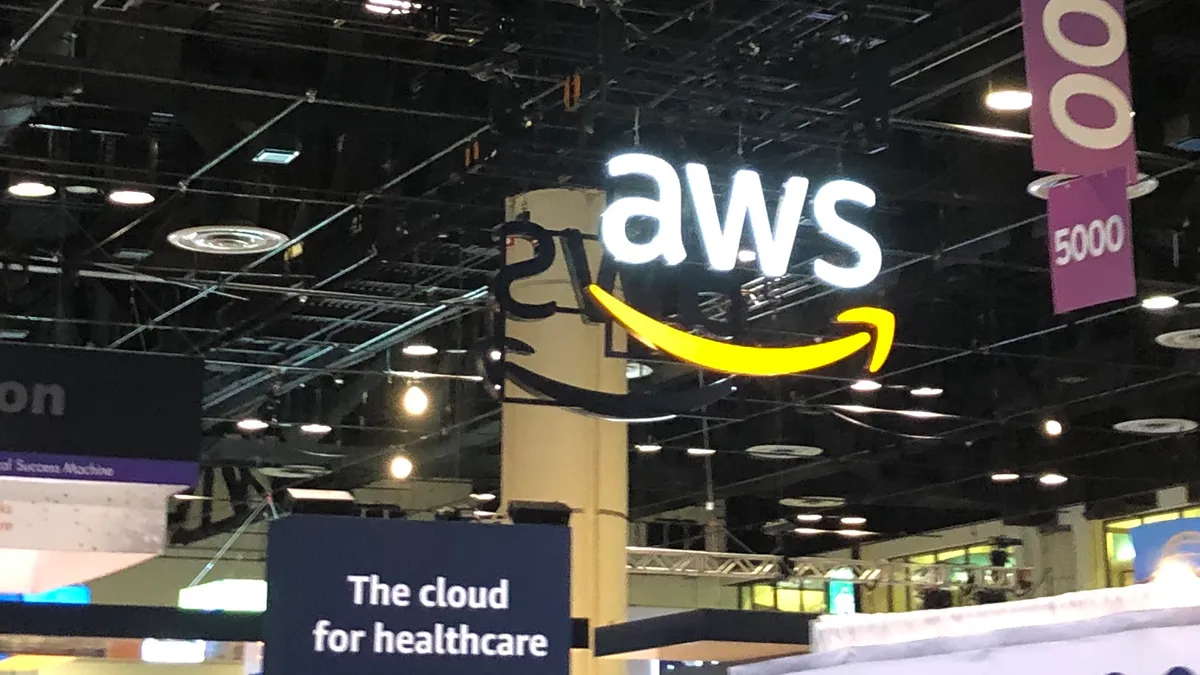Dive Brief:
- Amazon Textract, a machine learning service that automatically extracts selected text and data from scanned documents, is now HIPAA-eligible, Amazon Web Services announced in a blog post Thursday. The certification brings the number of AWS' HIPAA-eligible services up to seven as the company expands its AI-enabled products.
- Providers routinely extract text and data from documents such as medical records and forms manually or using simple software, which can be a time-intensive process.
- According to AWS, Textract — a combination of "text" and "extract" — uses artificial intelligence to identify text or data in myriad types of documents, like finding patient information in an insurance claim or values from a table in a digital medical chart, without needing clinician intervention.
Dive Insight:
The e-commerce behemoth in recent years has inked a slew of R&D partnerships with traditional healthcare companies, piloted a virtual medical clinic, purchased an at-home prescription delivery company, joined hands with J.P. Morgan and Berkshire Hathaway on a venture to lower employee healthcare costs and launched a bid to disrupt the medical supply chain.
One proven wellspring in the lucrative healthcare industry for Seattle-based Amazon has been its cloud services business, AWS. Of Amazon's overall $3.1 billion in operating income, more than half came from the department.
AWS made $8.38 billion in revenue last quarter — 13% of Amazon's total revenue.
"Following this announcement, we anticipate even more interest in Amazon Textract from both current and new AWS healthcare and life sciences customers," Kriti Bharti, product lead for Amazon Textract at AWS told Healthcare Dive.
A handful of clients stumped for the product in the AWS blog post. Nick Giannasi, chief AI officer at healthcare technology company Change Healthcare, said unlocking the potential of healthcare data can be difficult because it's "siloed in tables and forms that traditional optical character recognition hasn't been able to recognize," and that Textract will help because it can receive structured data in addition to text.
Other big clients of AWS include healthcare companies across multiple sectors, including Cerner, Celgene, Philips, the Fred Hutchinson Cancer Research Center and the American Heart Association.
Under the Health Insurance Portability and Accountability Act of 1996, covered entities like healthcare payers and providers that have access to patients' personal health information must insure safeguards are in place to protect that data.
AWS last expanded its suite of HIPAA-eligible services at the end of last year. With the addition of Textract, the Amazon's cloud business' HIPAA-certified products include Amazon Translate, a neural language translation service; Amazon Comprehend, a natural language processing offering that finds keywords and patterns in text; Amazon Transcribe, a speech-to-text service; Amazon Polly, a text-to-speech service; Amazon SageMaker, which helps develops create and train their own machine learning models; and Amazon Rekognition, which provides image and video analysis such as facial recognition.
The retail giant's smart speaker, Alexa, also allows for a handful of HIPAA-compliant healthcare uses, including allowing patients to get updates from care teams, schedule a same-day appointment and check the status of their prescription.
Some clinicians are leery, however, of adopting AI solutions. Physician burnout remains a huge problem in the industry — much of it compounded by clunky, burdensome technologies — and concerns remain around privacy and security, HIPAA-eligibility or not.
But tech companies maintain their products will help, not hurt, the industry.
"It's really about the adoption of these techniques to help solve the problem rather than, 'Here's an additional fancy thing to worry about," Amazon's senior leader of healthcare and AI Taha Kass-Hout told Healthcare Dive in February.
Amazon stock was slightly up premarket Friday following the news.












